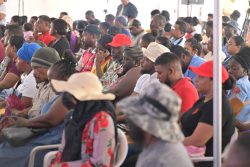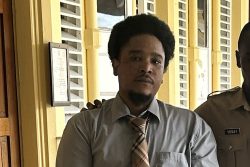The crisis on the playing field has coincided with the aggressive politicization of the game; the bureaucrats representing both the WICB and WIPA have been flexing their muscles, the politicians – as if they do not have enough on their own plates – have enjoined the affray, the region’s academics have turned their attention to writing about the crisis affecting the game and both the media and the fans of the game are still trying to catch up with the controversy.
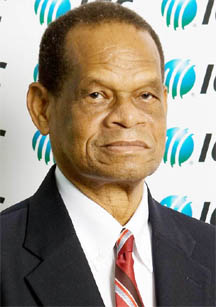
In its simplest form some of the brouhaha in recent years has been about whether or not Chris Gayle should have been exiled from the West Indies team in the first place. In a sense Caribbean people were perfectly right to be upset over Gayle’s absence from the team particularly since in his absence from the Caribbean side he had struck a rich vein of batting form even as the West Indies were drifting further and further into decline.
Other issues surfaced, however…..like players’ contracts and the manner in which players were being treated and whether or not those West Indians who were drifting off to play limited overs cricket in lucrative leagues were being traitors to the cause of reviving the fortunes of the regional game.
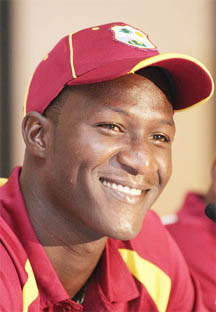
Meanwhile, cricketing politics was being played out right here in Guyana where the government was seeking to seize the reins of an inept local cricket board and the fallout was being manifested in a succession of ugly occurrences including litigation and the advent of former West Indies Captain Clive Lloyd as a professed knight in shining armour.
On the wider regional stage the Caribbean side was beginning – at least so it seemed – to halt its slide into ignominy by turning out two reasonmable performances against heavily jaded Australian and New Zealand teams though those accomplishments – if they can indeed be so described – was doing little to staunch the flow of critical public opinion on Darren Sammy being Captain of the team.
Caribbean cricket faces a problem that is common to just about every issue in the region. The politicians cannot restrain themselves from intervening, the academics feel compelled to weigh in with their points of view and the public appears to have an insatiable appetite for taking sides. The outcomes are predictable. The politicians – after their
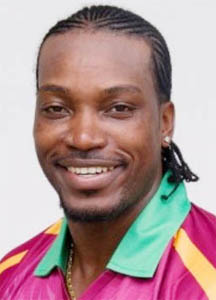
Fuss and fulminations get little if anything right; the academics place the problems in an intellectual realm where solutions become well nigh impossible and we, the public, simply shout our opinions at each other. As with most other things in the region we have no really level-headed institutions to which to turn to solve the problems afflicting our cricket.
Perhaps it may well be that as with everything else we feel compelled to intervene to ‘fix’ whatever it is that we perceive to be wrong with our cricket. It is here that as Caribbean people, as politicians, as academics and these days, increasingly, as journalists, we get ahead of ourselves, immersing ourselves in the notion that our opinions – much of which is often ill thought out and biased – are in fact solutions to the problem.
It simply does not occur to us that, perhaps, the less we apply our fix-it mentality, the more we allow our cricket to find itself, to regain its tempo and to rise again, the better for all concerned.







